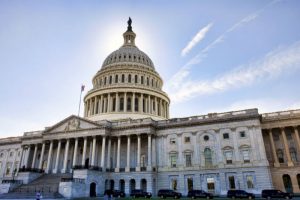
Rep. Abigail Spanberger helped pass bipartisan legislation that would give Central Virginia consumers the tools they need to block spam robocalls.
Between 2016 and 2018, U.S. consumers experienced an estimated 64 percent increase in unwanted robocalls. And this year, one study estimates that nearly 50 percent of all calls to cell phones in the United States will be scam calls. In June 2019 alone, Virginia experienced more than 114 million robocalls—approximately 15 robocalls per person by the end of the month. These calls significantly disrupt important communications and undermine public trust in the nation’s telecommunications systems.
The Spanberger-supported Stopping Bad Robocalls Act would create new requirements for caller authentication. Additionally, the bipartisan bill would give U.S. consumers the ability to block unlawful calls—and it would require more telemarketers to gain consent before calling individual Americans.
“The recent uptick in illegal robocalls in Virginia is more than just annoying—it’s dangerous. Across the country, robocallers are using fake phone numbers to trick consumers into divulging personal information. These illegal calls perpetuate fraud, and in cases where scammers are disrupting hospital operations and police departments, they are potentially putting our community members at risk,” said Spanberger. “I’m proud to stand with a strong, bipartisan majority of the U.S. House in cosponsoring and passing legislation that would prevent these intrusive calls. By strengthening caller authentication systems and giving consumers the ability to block unlawful calls at no extra charge, we are restoring trust in our system—and we are cracking down on those who break our laws. I’ll keep fighting to protect Americans from scams and those who try to swindle our most vulnerable citizens, and I urge the U.S. Senate to take up this commonsense legislation as soon as possible.”
In addition to its consumer protections, the Stopping Bad Robocalls Act would also give law enforcement and the Federal Communications Commission the tools, information, and resources they need to deter scam calls and investigate robocallers that break the law. These changes include lengthening the statute of limitations on robocalls violations and giving authority to impose greater fines.
The bipartisan bill is supported by AARP, Consumer Reports, Americans for Financial Reform, Center for Responsible Lending, Consumer Action, Consumer Federation of America, National Association of Consumer Advocates, National Consumer Law Center, Public Citizen, and Public Knowledge. Earlier this week, AARP Virginia thanked Spanberger in a Tweet for her support of the bipartisan legislation.
The Stopping Bad Robocalls Act is led by U.S. Representatives Frank Pallone (D-NJ-06), Greg Walden (R-OR-02), Mike Doyle (D-PA-18), and Bob Latta (R-OH-05).
Click here for a summary of the bill.










